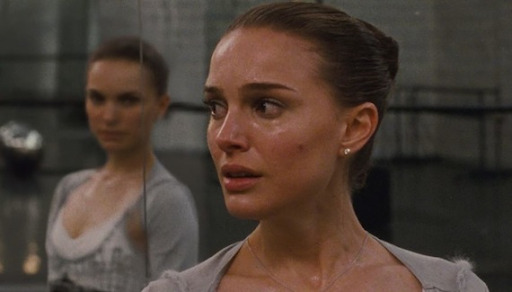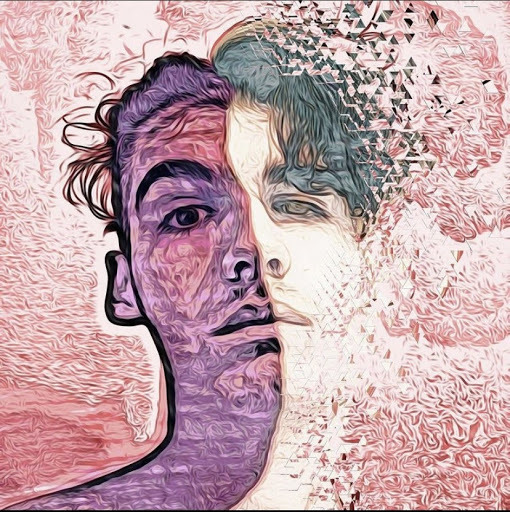#he literally stabbed her like american psycho and the next scene everyone’s so normal about it
Explore tagged Tumblr posts
Text
they let data get away with way too much
#watching phantasms#he literally stabbed her like american psycho and the next scene everyone’s so normal about it#king of not owning up to his actions
2 notes
·
View notes
Text
Mental Health Crisis in Media
This month’s blog post for Media & Society class is a good fit for what many people are dealing with during this never ending pandemic - the mental health crisis. Our list of films to watch were American Psycho, Donnie Darko, One Flew Over the Cuckoo’s Nest, Black Swan, and Parasite. Mental health is something we all need to talk more about. We’ve come a long way since 1975 when One Flew Over the Cuckoo’s Nest was produced, but sadly there’s still many misconceptions about mental health. Most people associate mental health with violent behavior. The vast majority of people with mental health problems are no more likely to be violent than anyone else (“Mental Health Myth,” 2017).
In all of these films, the main characters are coping with a mental health issue. All of them go through a stage of catharsis by the end of the film. Once again, I learned a new word - catharsis. According to Dictionary.com, it is defined as the process of releasing and/or relieving from stronger repressed emotions. The purpose of catharsis is to bring about some form of positive change in the individual's life (Cherry, 2020). Since mental illness is so complex, there are many interpretations of what each viewer thinks someone went through by the end of each film. If you haven’t seen any of the films above, I’ll warn you now about spoiler alerts.
For this assignment we were asked to pick two out of the five films mentioned above, explain the ending of each, and then discuss the connections between these films and their ambiguous endings. I’ll also explain whether I thought each main character went through catharsis. I decided to go with the two films I felt were more challenging for me to understand. I’d also like to add that the two films I’m going to write about really opened my mind to a deeper awareness of mental health. Chan School Dean Michelle Williams makes a powerful statement about mental health during the pandemic. “The past year has been terribly damaging to our collective mental health,” Williams said. “There is no vaccine for mental illness - It will be months, if not years before we are fully able to grasp the scope of the mental health issues born out of this pandemic” (Powell, 2021). Even though these films were all produced pre-pandemic, they provide a better understanding of what someone with mental health issues go through.
First on my list is One Flew Over the Cuckoo’s Nest. The ending of this film definitely had multiple meanings. And I think it had many meanings based on how you perceived McMurphy’s existence at the mental hospital. The way I saw it, McMurphy was the ‘cool guy’ that the other patients looked up to. Throughout the film he shows the other patients they aren’t as mental as Nurse Ratched makes them feel. He “frees” each patient of their mental health issue by having them step out of their comfort zone and literally out of the mental hospital. One part that really gave me a whole different insight of mental illness is when McMurphy hi-jacked a bus with all the patients on it and brought them on a boat ride. As they board the boat, the owner of the shipyard approaches them asking who they are. McMurphy introduces them one by one, “Dr. Martini, Dr. Taber… .” Instead of mental patients THEY were the doctors. As he said each man’s name, they stood tall and proud. It really was a cool moment in the film. I was actually cheering for them in my head. Fast forward to the end of the film, McMurphy ends up getting punished for hosting an out of control party at the mental hospital.

Normally the punishment would be shock therapy, but this time it was a frontal lobotomy. Chief is one of the patients that McMurphy became close with. They planned on escaping the mental facility together after the party. But when Chief saw McMurphy’s scars from the lobotomy, he knew he’d never be himself again. To “free” McMurphy, Chief suffocates him to death, just as McMurphy freed each of the patients he met during his stay. By freed, I mean they were temporarily freed of their mental health disorders, their fears, their anxieties. I do believe that the ending was cathartic for McMurphy. He was released of the suffering he would have to live with after the lobotomy. I was really hoping the ending went like this: McMurphy’s punishment was the usual shock therapy...Chief wakes him up and the two escape. In the closing scene you’d see them walking away from the mental health facility. But the actual ending had much more meaning and made me really understand mental health further. I have a very open mind about mental health issues - I never judge. But this film gave me a deeper understanding of how misunderstood mental health is. Each of the mental patients was dealing with their own anxiety - but how it is handled is key. Nurse Ratched kept each of them in their shell while “think outside the box” McMurphy put their anxiety right in front of them. With mental health, we really need to think outside the box more.

Next on my list is Black Swan. While we caught glimpses of Nina’s dual personality, it was in our face by the end of the film. Nina’s doppelganger is shown through the use of mirrors. We see how she sees herself and at times we see the evil side of her that is emerging. The mirror presented to her the darkness within herself that metaphorically depicted the evolution into the black swan (Nelson, 2013). The pain she inflicted on other people was actually herself. Between Nina being so repressed from herself, and her mom, she really had no chance of escaping her mental state. In my opinion, this film showed how mental health might be a coping mechanism. Nina’s mom kept her in a secluded, isolated world. Nina’s repression was learned from the person she was closest to - her mom. But as Lily and Thomas try to pull Nina out of her confined world, she starts to hurt herself. She’s only able to become the Black Swan after she stabs her perfect white swan self. The way I look at it, once Nina freed herself of who she was, she became who she wanted to be - the perfect ballerina who could fulfill the role of a lifetime. Unfortunately that freedom was death. As with McMurphy, Nina’s motives also led to catharsis by the end of the film. I was hoping that her catharsis was in her head and that she finally achieved her dual role of the swan. But in reality the only way Nina could do that was out of self mutilation and eventually suicide. So obviously I was hoping for a different ending of Black Swan, but it would not have had the eye-opening impact into the reality of mental health.
What connects these two films is their ambiguous endings. I think it’s actually symbolic that a film about mental health has more than one interpretation. Mental health is a complex issue, which would only make sense for the film’s ending to be just as complex. As I mentioned already, I would have written happier endings where Nina realizes she can be both the black and white swan and McMurphy leaves the mental hospital with Chief. But then what would I have learned by endings like that? That everyone gets cured from mental health? That mental health is easy to overcome and prevent? It would send the wrong message. In fact it would send a stereotypical message that people struggling with mental health can easily be ‘fixed.’ Many people don’t understand the very basic concept of mental health - your brain is in control - often there is a chemical imbalance or genetic predisposition to mental health problems (newroadstrmnt, 2018). If you think you know what mental health is and looks like, I urge you to watch these films. They both really showed me a side of mental health I wasn’t aware of.
On a side note, during this pandemic I learned about a very close friend who is going through depression. I had absolutely zero clue he was dealing with this. Just like I didn’t realize at first what Nina was dealing with. I am relieved he is talking to a professional and getting help. But I also know that might not be enough. I don’t harp on it but I always ask him how things are. If he’s having a bad day, I remind him he doesn’t have to deal with anything alone. If you have a friend that is struggling with something, don’t walk away from them. Just be there and listen. Remind them that it’s nothing to be embarrassed about and reaching out for help takes a lot of courage.
Below is a photo of myself I tried some effects on. I was trying to find artwork to share that shows an imbalance of the brain - although that wasn’t my intention when I created it.
Artwork by Marcello Laudato, 2017.

0 notes